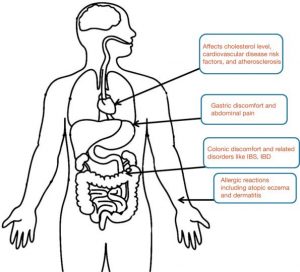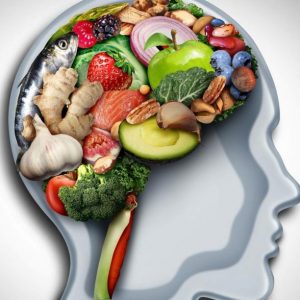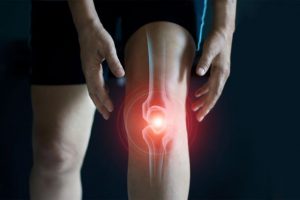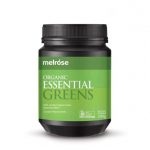
Peppermint tea is a common herbal tea that many people drink, including those trying to become more healthy by staying away from tea and coffee. However, even though it is natural and used by any people it is not necessarily good for you.
Peppermint tea has my benefits, including
However, as with any foods that have a strong flavour, too much can be a bad thing. Because of its actions of cooling and relaxing the stomach and intestines, regular use of peppermint can result in a weakened and ‘cold’ digestive system, causing symptoms such as
So peppermint is best used when it is needed, and not on a regular basis.
There are more bacteria in your body than your own cells- you have roughly 40 trillion bacterial cells and only 30 trillion human ones. (That means you are more bacteria than human!)
Altogether, these microbes may weigh as much as 1–2 kg, which is roughly the weight of your brain. And together they function as an extra organ in your body.

Most of these bacteria are in your digestive system and are referred to as your gut microbiome. Your gut contains up to 1,000 species of bacteria, so you have a whole ecosystem inside you. Each of them plays a different role in your body, and most are extremely important for your health, particularly your digestive system, immune system, heart health, mental state, food intolerances, and hormone balance, The right probiotics can help restore the balance to your internal ecosystem and help resolve the related health problems.
(For more about the importance of gut bacteria, please read
Ok, so gut bacteria are important. What probiotic should I take?
That depends on many factors, including your symptoms. Because there are so many different bacteria that are involved in different roles, there are over 18 different probiotics that we commonly prescribe, including specific strains or combinations for
So you can see that over-the-counter probiotics don’t usually do a lot, as your gut ecosystem is very complex and they are not specific for each individual.
If you would like to see if you need an individually prescribed, practitioner level probiotic to help sort out your health issue, please book in to see one of our expert naturopaths. Or even better, book in for a free Comprehensive Assessment, where we can check what is going on in your body, what is causing any problems, and the best way to sort them out. (Terms and conditions- the Assessment is a completely free service, with no obligations whatsoever.) Be well!
Could something as simple as food make a difference to your mood and mental state? And if so, how does this work and which foods are best?
A lot of it depends on the connections between your brain and digestive tract. Due to this close connection, diet and emotions can sometimes go hand in hand. This has even led the digestive tract to sometimes be referred to as “the second brain”.
In your gastrointestinal tract, there are billions of bacteria — and these bacteria can influence neurotransmitter production. In this context, neurotransmitters are important chemical substances that carrying messages from your gut to your brain.

Whenever you eat healthily, you’re actually promoting the growth of so-called “good” bacteria in your gut. This will then have a positive effect on the production of neurotransmitters. On the other hand, if your day-to-day diet is laden with high-sugar junk foods, you could experience inflammation within your gut. This inflammation will make it more difficult for your body to adequately produce mood-boosting neurotransmitters.
Sugar is probably the most common culprit behind inflammation in the gut, Even worse, sugar can help to feed any “bad” bacteria that are currently in your gastrointestinal tract. Sugar is tricky because it can actually result in a temporary spike in certain “feel good” neurotransmitters, such as dopamine. This can be deceptive, leading individuals to believe that consuming sugary foods will boost their mood, making them come back for more.
When neurotransmitter production spikes in this way, it’ll be followed by a crash and this crash will have an extremely negative effect on your mood. This can lead to a sort of vicious cycle, with your neurotransmitter production spiking and plummeting if you regularly consume sugary foods.
If you’re hoping to experience fewer fluctuations in mood, then it may be time to reduce the amount of sugar you’re consuming on a day-to-day basis. A diet based on healthy foods can actually promote an overall happier mindset — it could also make it easier to stay focused.
When food is better for the health of your gut, it’s often also going to be better for your mood and mental health. Here’s a shortlist of some gut-friendly foods, able to enhance the production of mood-lifting neurotransmitters.
1. Dark Chocolate
That’s right, dark chocolate is more than just a delicious treat — it is packed full of other mood-lifting compounds and has less sugar than other treats.
When you consume dark chocolate, you can expect a release of “feel good” compounds, such as theobromine and N-acylethanolamine.
In addition, dark chocolate is full of healthy flavonoids, which can help with the flow of blood to your brain, boost overall brain health, and reduce inflammation. All of these effects can help with mood regulation.
Try to avoid milk chocolate, which is higher in sugar and fat, and isn’t going to have the same benefits as consuming dark chocolate.
2. Fatty Fish
Fatty fish is one of the best dietary sources of omega-3s and is an easy (and tasty) one to incorporate into your diet. For instance, both albacore tuna and salmon are packed full of two particular omega-3s — eicosapentaenoic acid (EPA) and docosahexaenoic acid (DHA). Both EPA and DHA have been linked to lower levels of depression, making them some of the best dietary mood boosters out there.
Plus, omega-3s can help support the fluidity of brain cell membranes.
3. Fermented Foods
Fermented food comes in a wide variety of forms, so it’s harder to get bored with them. Examples of some popular fermented food items are
Thanks to the fermentation process, these foods are loaded with health-supporting probiotics. Basically, during fermentation, live bacteria are given a chance to thrive, and these bacteria will convert the sugars into healthier acids and alcohols.
Worth noting is the fact that not all fermented foods are high in probiotics. For example, foods like beer and some breads have very little probiotics due to the cooking and filtering processes when they are made.
4. Nuts and Seeds
Nuts and seeds are chock-full of healthy fats, plant-based proteins, and fibre. Fibre is able to slow down the digestion of other carbs, which means that sugar is more gradually released into your bloodstream. So, less of a spike and a crash, allowing your energy levels to stay stable.
Nuts also provide you with tryptophan. Tryptophan is an amino acid and is responsible for serotonin production. A variety of nuts and seeds (including cashews, almonds, walnuts, pumpkin seeds, sunflower seeds, and sesame) are high in this particular mood-lifting amino acid.
Other nuts, including pine nuts, Brazil nuts, and almonds, are good sources of selenium and zinc. Both of these minerals are quite important to healthy brain function, and a deficiency of them has been linked to higher rates of depression.
While some foods can supply you with a boost in mood, others can lead to a drop, including
Those are just a few examples, although the general rule remains: foods that are high in sugar, as well as foods that are highly processed, are probably going to be worse for your mood. Additionally, alcohol is considered to be a depressant, so long-term it can also have a negative effect on your mental state.
The specific food items you are eating aren’t all that can affect your mood. Your food-related habits and tendencies can also play a role. If you’re looking to boost your mood, consider building a better relationship with food and adopting the following habits:
Eat Regularly
When you create a habit of not eating for long stretches of time, followed by eating large amounts of food, you’re probably experiencing frequent blood sugar drops. Whenever your blood sugar plummets, you’re more likely to feel irritable, tired, or even depressed. If you’re eating regularly and opting for foods that slowly release energy (whole-grain bread, nuts, and seeds, oats, etc.), your levels are more likely to stay stable, and you can avoid drops and spikes in blood sugar.
Getting Your Five a Day
As well as eating fruits and vegetables, it is important to have the correct amount of them. Having at least five servings of fruits and vegetables a day is ideal.
Further, try to eat a wide variety of different fruits and vegetables, in order to get a bigger array of nutrients. Focus on consuming fruits and veggies of many colours, as this is an indicator of the nutrients they may contain.
Meal Planning and Mindful Eating:
Try preparing a week’s worth of chopped veggies and soaked/cooked legumes or beans ahead of time, to make it easier to whip up a homemade meal that could be as tempting as a takeaway.
If meal prepping isn’t for you, stock up on frozen or canned veggies- just look for low sodium products to avoid too much salt. You can also try microwavable grains, such as quinoa, brown rice, or whole-grain couscous.
If you are looking for lower carb options, try swapping your usual grains and carbohydrates with vegetable-based options instead. Look for cauliflower products such as cauliflower pizza crusts, cauliflower “rice” and cauliflower “mashed potatoes”.
No matter what changes you decide to implement, just remember, the basic rules of nutrition still apply. Focus on making a habit of staying hydrated, eating regular meals, and being mindful of how much caffeine and alcohol you consume.
You may not be able to make all of these changes at once and that is fine. Even just small adjustments like being mindful of what you’re eating, and appreciating the good feeling a nutritious meal gives you afterward, can make a big difference over time.
If you would like to eat better, improve your health, or you have a health problem or chronic disease you want to sort out, we offer a free Comprehensive Assessment, to establish what is going on in your body, what is causing the problem, and the best way to sort it out. (Terms and conditions- the Assessment is a completely free service, with no obligations whatsoever.) Be well!
Depression is one of our most common mental health disorders. One in seven Australians will experience depression in their lifetime, which means that 2.83 million people are suffering from depression today.

According to the National Institute on Mental Health, research suggests that depression is caused by a combination of genetic, biological, environmental and psychological factors. One of the biological factors not often discussed is nutritional imbalance. Nutrition plays a major role in our psychological and emotional well-being, and deficiencies in key vitamins and minerals can compromise optimal brain functioning and increase levels of stress and anxiety.
1. Vitamin D
Vitamin D plays a significant role in serotonin activity, and serotonin is the key neurotransmitter involved with mood, sleep, appetite, and digestion. It is also necessary to ensure the proper absorption of phosphorus into your bloodstream, which helps facilitate cell repair and tissue growth in your brain and body.
According to the Australian Bureau of Statistics, just under one in four Australian adults (23%) has a Vitamin D deficiency. Vitamin D frequently needs to be taken as a supplement, as it can be hard to stay at sufficient levels with sun and food alone.
2. Omega-3 Fatty Acids
There’s a good reason why you hear health and nutrient experts advocate for increased consumption of Omega-3 fatty acids. They are essential for healthy brain cell functioning and the reduction of inflammation, and work by preventing trans fats from entering your neural system.
3. Folate
While you’ve likely heard of folic acid, you might be less familiar with folate. Both are forms of vitamin B9. Folate is the natural form and easier for humans to use than the synthetic folic acid. Along with other B vitamins, folate helps to clear homocysteine–a by-product found in the bloodstream and associated with cardiovascular disease, Alzheimer’s disease, depression and other conditions. Folate also works to support serotonin production.
4. B Vitamins
Lack of B vitamins can have a significant influence on your overall psychological wellbeing. Vitamins B6 and B12 have been proven to boost skin and nail health, reduce stroke risk and support mental health function. According to one study, more than a quarter of severely depressed women were found to be deficient in B12.
5. Magnesium
Essential in over 600 metabolic functions, magnesium is one of the most important minerals in the body. It is vital to brain functions such as stress response, recovery and repair. It is only second to iron as the most common nutritional deficiency in developed countries.
Unfortunately, much of our soil has been depleted of magnesium making it increasingly difficult to achieve a sufficient level through diet alone, and so supplements may be necessary to provide optimum levels to the brain.
6. Zinc
Zinc is essential for regulating the brain and body’s response to stress. The highest concentration of zinc in our body is found in the brain, as it is central to healthy brain function. Not only is it responsible for activating your central and peripheral nervous system, but it is also required for neurotransmitter, enzymatic and hormonal processes. In addition to depression, zinc deficiency has been linked to anxiety, schizophrenia and eating disorders.
7. Iron
Iron is critical to all bodily functions as it carries oxygen throughout the bloodstream. It is also the most prevalent nutritional deficiency in developed countries, and is more common in women than men. Symptoms of iron deficiency can present as similar to those of depression, such as mental and physical fatigue, low mood and irritability. Low levels of iron may also trigger panic symptoms including panic attacks.
If you have fatigue or emotional symptoms it is important to get your blood checked for your blood counts, iron levels and ferritin levels.
8. Amino Acids
Known as the building blocks of protein, amino acids are necessary to help your body build muscles. They are also necessary for healthy brain function. Amino acid deficiencies have been linked to depression, brain fog, lack of focus and general sluggishness. There are a total of nine amino acids that our bodies cannot produce and must be obtained through a healthy, balanced diet.
The thyroid gland can have a strong effect on your mood, and nutritional deficiencies that can affect your thyroid and may cause depression include iodine and selenium.
For more information please visit our post on Natural Treatments for Depression.
If you are suffering from depression, think you may have nutrient deficiencies, or are looking for treatment for depression Brisbane please book in to see one of our expert naturopaths, who will be able to properly assess your condition. Or even better, book in for a free Comprehensive Assessment, where we can check what is going on in your body, what is causing any problems, and the best way to sort them out. (Terms and conditions- the Assessment is a completely free service, with no obligations whatsoever.) Be well!
The human body is very complex, so we treat a very broad range of conditions. The following is a list of some of the conditions clients came to us for in a single week.

If you have a health issue and you would like to find out if we can help you, you can book in for a free Comprehensive Assessment. The Assessment will look at what is going on in your body, what is causing any problems, and the best way to resolve them. (Terms and conditions- the Assessment is a completely free service, with no obligations whatsoever.) Have a great life!
Just as all living things operate best if the temperature is not extremely hot or extremely cold, all plants, animals and people operate best if their body is not too acid or too alkaline. Most plants don’t do well at all, or may even die, if the soil is too acid. If the water in your fish tank is too acidic, your fish will die.

If your body is too acidic, it has 3 effects.
The acid-alkaline balance of the body (pH) is crucial to our overall health. In a healthy state our bodies are slightly alkaline, and our bodies are constantly working to maintain the ideal alkaline pH level. Even a minor variation in blood pH is dangerous, and can lead to many symptoms such as constipation, poor digestion, colds, headaches and fatigue.
If your body is too acidic, it will often pull calcium and other minerals out of your bones to help counteract the acidity. This can lead to osteoporosis and other problems in the body.
A balanced pH can have many benefits which include protection against premature ageing, improved bone and digestive health, enhanced mental clarity, increased energy levels, and it can promote a healthy weight range.
A quick, simple and inexpensive test to determine your pH is available at our clinic. Please ask our receptionist to arrange for an ‘Acidity Test’ for you.
The most common causes of the body being too acidic are
There are a number of simple changes that can be made to your everyday lifestyle that can help maintain a balanced pH level and continued good health!
Lemon Juice
Even though lemon juice itself is acidic, the effect on the body is to stimulate it to counteract the acidity. First thing every morning, squeeze ½ a lemon, put the juice into warm water, and drink it. (Don’t use store-bought lemon juice.)
Water
Choose purified water over tap water. Purified water has a pH level that is relatively neutral. Tap water is usually slightly acidic due to the added chemicals. You may also want to add lemon juice to your water.
Coffee/ Tea/ Soft Drinks
Coffee, tea and soft drinks are highly acid forming, so limiting or avoiding these drinks will help balance your pH. If you need to have something other than water, substitute the coffee or soft drink for a green tea or herbal tea. (See also ‘Green Drinks’ near the end of this Report.)
Preservatives/ Additives/ Food Colouring
Preservatives, additives and food colouring can be stored in your body and increase its acidity. If your body’s elimination pathways are not working properly, and you are not drinking enough water, these chemicals can start to build up in your body. Limiting or avoiding foods that contain preservatives, additives or food colourings will help maintain an ideal pH balance.
Artificial Sweeteners
All artificial sweeteners are very acid forming. This is because they are highly processed and as a result they are toxic to your body. A great alternative to artificial sweeteners is Stevia. Stevia is a herbal sugar substitute, and causes no harm to your body.
Eat Fresh Fruit and Vegetables
Almost all fruits and vegetables make your body more alkaline (less acidic). Including a couple of pieces of fresh fruit and plenty of vegetables in your everyday diet is also beneficial because of all the nutrients they contain. (Having them cut and ready for you to snack on between meals will help you from eating less healthy options.) Almonds and avocado are great snack options because they are filling, nutritious, and alkaline forming.
Food Combining
Eating foods at the right time is important to avoid increasing the acidity levels in your body. This is because different foods require different environments and enzymes for proper digestion. For example, proteins require a more acidic environment; carbohydrates require a more alkaline environment. Combining these foods together may increase your chance of having a pH which is more acidic. As a simple guideline, try and avoid combining starches/ carbohydrates with proteins. Instead, eat proteins with vegetables or salad and starches/ carbohydrates with vegetables. Fresh fruit should be consumed on its own or about half an hour prior to other food. Healthy oils may be eaten with all vegetables, lemon or lime, avocado, tomato, capsicum, and with starches.
Green Drinks (available at our clinic)

One of the best ways of balancing your body’s pH is by drinking concentrated organic green vegetable powder mixed with water. These drinks provide you with abundant nutrients that are easily absorbed and are alkalising to the body.
We have tried a variety of products that help to make the body less acidic, and Essential Greens is the best we have found. It has a pleasant ‘green’ taste, and helps to keep the body from losing bone calcium.
Essential Greens is a blend of green super-foods, packed with nutrients, and is certified Organic by the ACO. It is a natural source of minerals, vitamins, antioxidants and chlorophyll, for cleaning the blood and supporting the immune system. Essential Greens is also a rich source of dietary fibre for good colon health and regularity. Drinking it regularly is also an easy way to increase your water intake.
Click here for more information on the causes and treatment of arthritis.
If you would like to find out if a natural approach to arthritis or other mental health issue is likely to work for you, consider booking in for a free Comprehensive Assessment at our clinic. We can then check what is going on in your body, what is causing any problems, and the best way to sort it out. (Terms and conditions- the Assessment is a completely free service, with no obligations whatsoever.) Have a good life!

COVID has been a very trying time for many people, and we have certainly seen an increase in clients with high stress, anxiety or depression since it came along. So how can we get our ‘happy’ back again?
The first thing is to consider the main physiological causes of mental health issues, such as depression, anxiety, or chronic stress, and get them addressed if any of them apply to you.
Low Thyroid Function
Your thyroid can have a major impact on your moods.
(It has been reported that at least 10%-15% of people suffering from depression have a thyroid hormone deficiency.)
Thyroid problems tend to be under-diagnosed; it is estimated that over 1 million Australian have an undiagnosed thyroid disorder. One of the reasons for this is that blood tests ordered by GPs usually only measure the TSH (thyroid-stimulating hormone) levels. Whereas most experienced natural therapists and The Australian Thyroid Foundation recommend that additional tests be conducted to assess the thyroid more thoroughly, including thyroid hormones T4 and T3, and thyroid antibodies tests.
Also, a link has also been discovered between low T3 and long-standing depression. The usual treatment for low thyroid is a synthetic T4 medication, so if the depression is caused by low T3 instead of low T4, the medication could potentially make the person’s depression worse instead of better.
Nutrient Deficiencies
The medical research literature contains an abundance of peer-reviewed studies which show links between depression and various nutritional deficiencies.
Some of the minerals are particularly important. Our bodies require optimal amounts of trace minerals such as magnesium, zinc, and vanadium (to name a few) to function. A lack of some minerals or excess of other minerals can trigger symptoms of depression. For instance, low levels of zinc are associated with a resistant form of depression. Deficiencies of magnesium can bring on a wide range of psychiatric symptoms related to depression and psychosis. Research has revealed a link between high levels of the mineral vanadium and manic symptoms. Low lithium (which helps control B12 functions) often causes a type of depression that involves bad brain fog.
The other most common nutritional causes of low mood are deficiencies of any of the following.
Food Allergies
Food allergies create a metabolic disorder that can lead to a large range of “mental” symptoms, including depression.
Gluten and dairy are the most common foods people react to. And partially digested dairy and wheat particles (called caseomorphins and gliadomorphins) are commonly found in the urine of severely depressed patients (as well as children with autism and ADHD). These unusual proteins affect brain function, and can lead not only to depression but also psychosis and autism.
Inflammation
The average Australian diet contains many foods that stimulate inflammation in the body, and there is extensive research showing that depression is associated with chronic low-grade inflammation.
Gut Bacteria
The bacteria in your intestines can have an indirect but significant effect on your brain. More about the effects of gut bacteria.
Hormonal Imbalances
For women, the reproductive hormones oestrogen and progesterone can have an obvious effect on their mental state. But did you know that an imbalance of other hormones such as insulin and cortisol can also have a detrimental impact on depression?
Depression and Adrenal Function
Depression has been linked to disruptions in the body’s stress centre — the hypothalamic pituitary adrenal (HPA) axis. The HPA is a complex communication system between the hypothalamus, the pituitary gland, and the adrenal glands.
The hypothalamus is a region of the brain that controls an immense number of functions in the body, some of which include the emotions, behaviour, pain, and pleasure. It is basically a collecting centre for information relating to the well-being of the body, and much of this information is used to stimulate the pituitary to produce different hormones.
One of these pituitary hormones (adrenocorticotropin) is in turn responsible for causing the adrenal glands to produce the stress hormones cortisol and DHEA.
Cortisol and DHEA have been directly linked to chronic stress and other emotional conditions. There is a strong relationship between excess production of cortisol and mood variations. As with many of the body’s physiological responses, balance is the key. Overactivity of the body’s stress system is associated with anxiety, insomnia, loss of libido, while underactivity is linked to depression with accompanying fatigue, lethargy, and indifference.
It is common to find an imbalance in the relationship between the hypothalamus, pituitary, and adrenal glands in those with depression or anxiety.
Common Chemicals Affecting the Brain
Most chemical sensitivities occur gradually over years until the body reaches a certain tolerance point. However, sometimes a person may experience a sudden onset of depression when a new carpet is installed, their home is renovated or freshly painted, etc. Your body needs plenty of zinc to neutralise everyday home and office chemicals.
The most common chemical found in carpets, home furnishings, copy machines, commercial floor cleaners, polishers, waxes, glues, adhesives, and other common household and office surroundings is called trichloroethylene. This chemical is easily inhaled or absorbed through your skin. Normally this and most other man-made chemicals would be neutralized by your body’s own detoxification system and eliminated.
However, if your body’s ability to neutralise chemicals is reduced (for example by a zinc deficiency), this chemical will back up and accumulate in the brain. When this happens it is usually converted to choloral hydrate, which causes a person to feel spacey, dizzy, dopey, unable to concentrate, foggy, and very depressed.
This is one example, but there are many other common chemicals linked to depression.
Blood Flow in the Brain
In Japanese acupuncture, blood flow within the brain is very important. Restricted blood flow in the head can result in poor memory, depression, brain fog, dementia, etc. This poor blood flow can result from an old injury to the head, tightness or restriction in the neck, or less commonly from a congested liver which is affecting the blood flow in the body as a whole.
So there is no one treatment that will fix everyone; if you take ten people suffering with depression it is likely the causes and the treatment would be different for each of them. What may help one person may do absolutely no good for five others. So establishing what is causing the problem is a crucial first step.
Naturopathy
Registered naturopaths normally have a 4 year degree in naturopathy. They look at how the chemistry and processes of the body are working, what is not working properly, what is causing the problem, and how to correct it with natural substances. For example, they would likely check and treat the following as needed.
and many other processes and functions in the body. Typically, high potency practitioner-level supplements, herbs and/or diet changes are prescribed by them to improve the body and correct the problem.
Acupuncture
Acupuncture can have many beneficial effects on the body. For example, it has been medically established that acupuncture can help with depression caused by chronic pain by treating the underlying pain.
Natural therapies aim to correct any problems with the way the body is working to provide a long-term solution for the problem, rather than just treat the symptoms.
If you would like to find out if a natural approach to your depression or other mental health issue is likely to work for you, consider booking in for a free Comprehensive Assessment at our clinic. We can then check what is going on in your body, what is causing any problems, and the best way to sort it out. (Terms and conditions- the Assessment is a completely free service, with no obligations whatsoever.) Have a good life!

The medical term for painful menstrual periods is dysmenorrhea, and the pain is believed to be caused by uterine contractions. Period pain can last for just the first day of a woman’s menstruation or can go on for days. Many other symptoms can occur as well, such as PMS, bloating, acne, etc. due to fluctuations in the hormone levels. The primary regular medical treatment is to artificially regulate the cycle by use of the Oral Contraceptive Pill. Often this can provide symptomatic relief, however sometimes women can still have breakthrough bleeding and pain around their period.
The severity of the pain can vary greatly; we have seen many women who were bed-ridden for 5 days, and some even longer. Sometimes women experience pain around their ovulation as well. As well as abdominal pain, some experience pain in other areas around the start of their periods, such as lower back pain or headaches.
The ‘ideal’ menstrual cycle should occur every 28 days, with only mild or no pain. Bleeding should occur for 5 days, not be heavy or light, with no clotting, and be a healthy red colour.
Just before the start of a period, the levels of a hormone called prostaglandin rise. This triggers the muscle contractions in the uterus which expels the lining. If not working correctly, these contractions are believed to cause pain and inflammation.
Each person’s body works slightly differently, so there is no one solution for everyone. In fact, often a combination of several of the approaches below will work best.
Supplements– high potency, practitioner-level supplements can be used to
Acupuncture
Acupuncture is well-known for its ability to relieve pain. One of the common causes of period pain from an acupuncture point of view is poor blood flow in the uterus. Prior to a period there is a natural increase in blood volume in the woman’s body, and this goes down to normal levels by the end of her period. However, if there are any areas in her body where the blood flow is restricted for some reason, the blood will build-up in that area, just like city traffic at peak-hour. The blood will not be able to move properly, which will cause pain, irritation, and inflammation.
Some of the symptoms of this ‘blood stagnation’ include extremely painful periods, clots, heavy or irregular periods, a heavy sensation in the abdomen or legs, and menstrual blood that is a dark red (or even purple) in colour. Period pain caused by poor blood flow in the uterus is often relieved by heat, such as a hot water bottle.
If there are other areas of the body where the blood flow is poor, pain can occur in these areas as well when the blood volume increases before a period. The pressure, irritation and inflammation caused by the congested blood flow could result in lower back pain, headaches or breast tenderness.
Some research on Acupuncture for Period Pain
(None of these studies provide conclusive evidence of effectiveness, but they hopefully lay the groundwork for further scientific investigation.)
Other Factors
Diet, alcohol consumption, various everyday chemicals, and the Oral Contraceptive Pill can cause imbalances in women’s hormones.
The human body is incredibly complex and sometimes may not work correctly. Natural therapies aim to correct any problems with the way it is working to provide a long-term solution to the problem, rather than just treat the symptoms. (If you have a body that is working well, it is fair to say that you will have a happier and better life.)
Pain and other period symptoms are very common but are definitely not ‘normal’. If you would like to find out if a natural approach to your period problem is likely to work for you, consider booking in for a free Comprehensive Assessment at our clinic. We can then check what is going on in your body, what is causing any problems, and the best way to sort it out. (Terms and conditions- the Assessment is a completely free service, with no obligations whatsoever.) Have a great life!

A study of 17,000 women by the University of Technology, Sydney, found that in one year acupuncture was used by around 1 in 10 women aged 34-39 years, and around 1 in 16 women aged 62-67 years.
A large proportion of the younger women had been diagnosed with endometriosis, low iron levels, anxiety disorder or Chronic Fatigue Syndrome.
Women in the middle-aged group who consulted an acupuncturist were more likely to have low iron levels, anxiety disorder, depression, Chronic Fatigue Syndrome or arthritis.
If you have a health issue you are wanting to sort out, we suggest booking in for a Comprehensive Assessment at our clinic. We can then have an in-depth look at what is happening in your body, what is causing the problem, and what can be done to sort it out. (Terms and conditions- the Assessment is a completely free service, with no obligations whatsoever.) Most people find their assessment to be very helpful, interesting and informative.

One of the most amazing aspects of the human body is its ability to heal itself. There are 30-40 trillion cells in the human body, and every second that we’re alive, these cells are working tirelessly to keep us at, or even bring us back to, a state of good health. When our bodies are injured or become ill, our cells can be damaged or destroyed, sometimes in large quantities. However, these cells have the ability to heal or replace themselves, to keep our body functioning at its optimal level.
There are plenty of examples of how the body repairs itself, including the liver regenerating. the intestines replacing their worn lining, bones knitting back together, lungs repairing themselves after someone stops smoking, and many more. But probably the simplest example of cell repair is when you cut or damage your skin. Blood vessels at the site clamp down to slow the bleeding, while blood platelets begin clumping together to form a clot to stop the bleeding. Once the clot is in place, blood vessels reopen a bit to allow the necessary amount of oxygen back into the wound for healing.
Next, white blood cells begin digesting dead cells in order to make room for new cells to form. They also fight infection and oversee the repair process. In the rebuilding process, oxygen-rich blood cells arrive to build new tissue by creating collagen (you usually see the result of this process as a scar that starts out red and dulls over time). Over time, the new tissue gets stronger until the process is completed.
While the body’s ability to heal itself is truly impressive, there are a number of factors that can restrict this process.
General Health
Key Nutrients
Inflammation
Inflammation is not always a bad thing. In fact, when the immune system is working effectively, inflammation plays an important role in healing. When a body is damaged, inflammation is fundamental to several stages in the healing process, including clearing out the dead cells in the area.
However, if the inflammation doesn’t settle down properly it can actually cause more damage to the area. (If an old injury still looks slightly red or is still a little tender when you press any part of it firmly, it is highly likely there is still inflammation there, stopping it repairing fully.)
Blood Flow
Even if you have fantastic levels of all the important nutrients, the damaged area your body won’t heal properly if the nutrients can’t get there. Poor blood flow in the area will result in low levels of nutrients, low levels of oxygen, and high levels of wastes, prolonging pain and inflammation, and possibly causing increased scarring.
A healthy body fights infection, heals wounds, kills cancer cells, repairs damage, and fights the aging process. So a healthy diet, appropriate exercise, and plenty of sleep are all helpful.
Supplements
Acupuncture is often great to free up the liver, improve the blood flow in the area, reduce inflammation and stimulate the repair processes. (We find that a combination of acupuncture and naturopathic treatment usually works much better than either one on its own.)
Our bodies are in a constant state of removing damage and producing new, healthy tissue. Daily wear and tear are also promptly dealt with, so even ‘age-related’ and degenerative problems such as arthritis can be improved with the proper treatment.
If there is a problem in your body that is not going away, we suggest booking in for a Comprehensive Assessment at our clinic. We can then have an in-depth look at what is happening in your body, what is causing the problem, and what can be done to sort it out. (Terms and conditions- the Assessment is a completely free service, with no obligations whatsoever.) Most people find their assessment to be a very helpful, interesting and informative session.

Valued at $120, your Assessment will help to uncover:
All this will be fully explained to you, and you can ask as many questions as you like. That way we can be sure to give you all of the right information, understanding and advice you need. Terms and conditions: This is a free, no obligation offer.